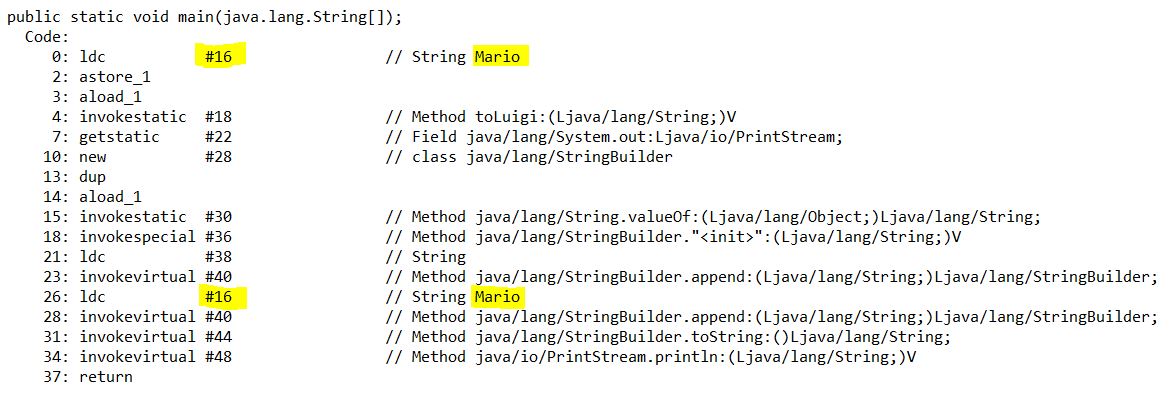Another related point: you can make use of the constant pool to improve the performance of string comparisons in some circumstances, by using the String.intern() method.
That method returns the instance of String with the same contents as the String on which it is invoked from the String constants pool, adding it it if is not yet present. In other words, after using intern(), all Strings with the same contents are guaranteed to be the same String instance as each other and as any String constants with those contents, meaning you can then use the equals operator (==) on them.
This is just an example which is not very useful on its own, but it illustrates the point:
class Key {
Key(String keyComponent) {
this.keyComponent = keyComponent.intern();
}
public boolean equals(Object o) {
// String comparison using the equals operator allowed due to the
// intern() in the constructor, which guarantees that all values
// of keyComponent with the same content will refer to the same
// instance of String:
return (o instanceof Key) && (keyComponent == ((Key) o).keyComponent);
}
public int hashCode() {
return keyComponent.hashCode();
}
boolean isSpecialCase() {
// String comparison using equals operator valid due to use of
// intern() in constructor, which guarantees that any keyComponent
// with the same contents as the SPECIAL_CASE constant will
// refer to the same instance of String:
return keyComponent == SPECIAL_CASE;
}
private final String keyComponent;
private static final String SPECIAL_CASE = "SpecialCase";
}
This little trick isn't worth designing your code around, but it is worth keeping in mind for the day when you notice a little more speed could be eked out of some bit of performance sensitive code by using the == operator on a string with judicious use of intern().

